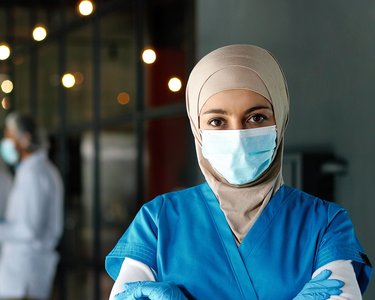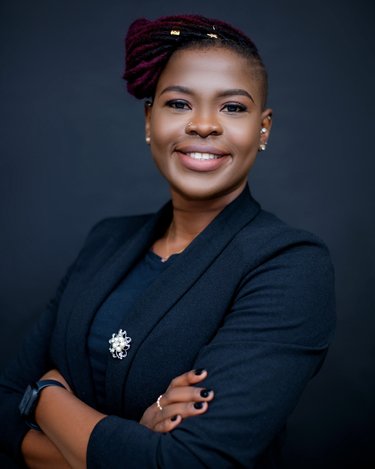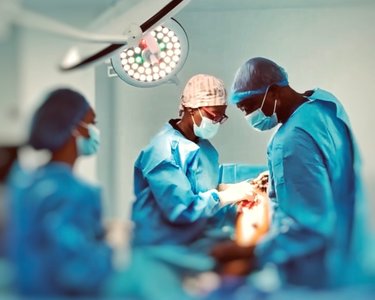
My journey in humanitarian surgery began long before I became a UKHIH Humanitarian Surgery Innovation Fellow with the Royal College of Surgeons of England. Growing up in Sierra Leone, I knew all too well the stark reality and consequences of limited access to high-quality, affordable and safe surgical care. I understood the emotional, financial and physical burden of witnessing preventable suffering, disability and death due to a lack of safe surgical access.
Whilst the accepted definition of humanitarian surgery is emergency surgical care delivered within major disaster and/or conflict settings, there's a growing recognition of the need for long-term capacity building, strengthening healthcare infrastructure, and developing sustainable surgical systems.
In 2022, I was awarded a Humanitarian Surgery Innovation Fellowship by the Royal College of Surgeons of England (RCS England) as part of their UKHIH-funded scoping study to explore the key challenges and solutions to building humanitarian surgical capacity, resilience and preparedness in low resource settings. I started my fellowship hoping to refine my research skills and knowledge of surgical care delivery in conflict and disaster settings. However, I walked away with a broader mission: to help reshape surgical systems that can withstand shocks and stand the test of time.
Before my fellowship, much of my training focused on performing surgeries, fixing bones, and reconstructing limbs. I had seen many surgeons come to Africa on short-term surgical missions, perform operations, and leave shortly afterward. But for me, Africa is home. I cannot afford to think of temporary solutions - I must think of building strong foundations and lasting legacies. My time with RCS England broadened my perspective. I no longer see myself as just a surgeon. I am now an advocate for surgical equity, a policy thinker, and a legacy builder.
This change in perspective has made me think more deeply - what happens after the humanitarian teams leave? How can we invest in long-term surgical capacity and move beyond emergency response? How can we ensure that local surgeons have the resources, infrastructure, and training to sustain care? Through my work with organisations committed to this vision, I have seen how training surgeons and developing affordable surgical technologies can create a lasting impact.
This fellowship helped reshape my view of humanitarian and global surgery, connected me with a global network of humanitarian surgeons, provided opportunities to engage in research and advocacy, and solidified my belief that surgery is as much about saving lives on the table as it is about saving lives off the table.
We need to rethink our approach. Instead of temporary missions, we need long-term investments in surgical infrastructure. Instead of international surgeons flying in for a few weeks, we need local capacity building so that healthcare systems can stand independently. Instead of solely focusing on emergency response, we must create systems that ensure access to surgery long after the crisis has ended. Many of these ideas were recently echoed in The Humanitarian Surgery Initiative’s call to action – Life on the Line: Reshaping Humanitarian Surgery.
I am moving forward from this fellowship with a drive to be part of the global movement, ensuring that surgery is not an afterthought in humanitarian health but rather recognised as a fundamental human right to be upheld even in the most challenging settings.
Author Profile
Dr Marcella Ryan-Coker is a surgical trainee in orthopaedics and trauma at the University of Nairobi, Kenya and a former Humanitarian Surgery Fellow at the Royal College of Surgeons of England, supported by UKHIH. Her work bridges clinical care and health systems research, with a focus on surgical equity, trauma system development, and capacity-building in sub-Saharan Africa.

You might also be interested in…

